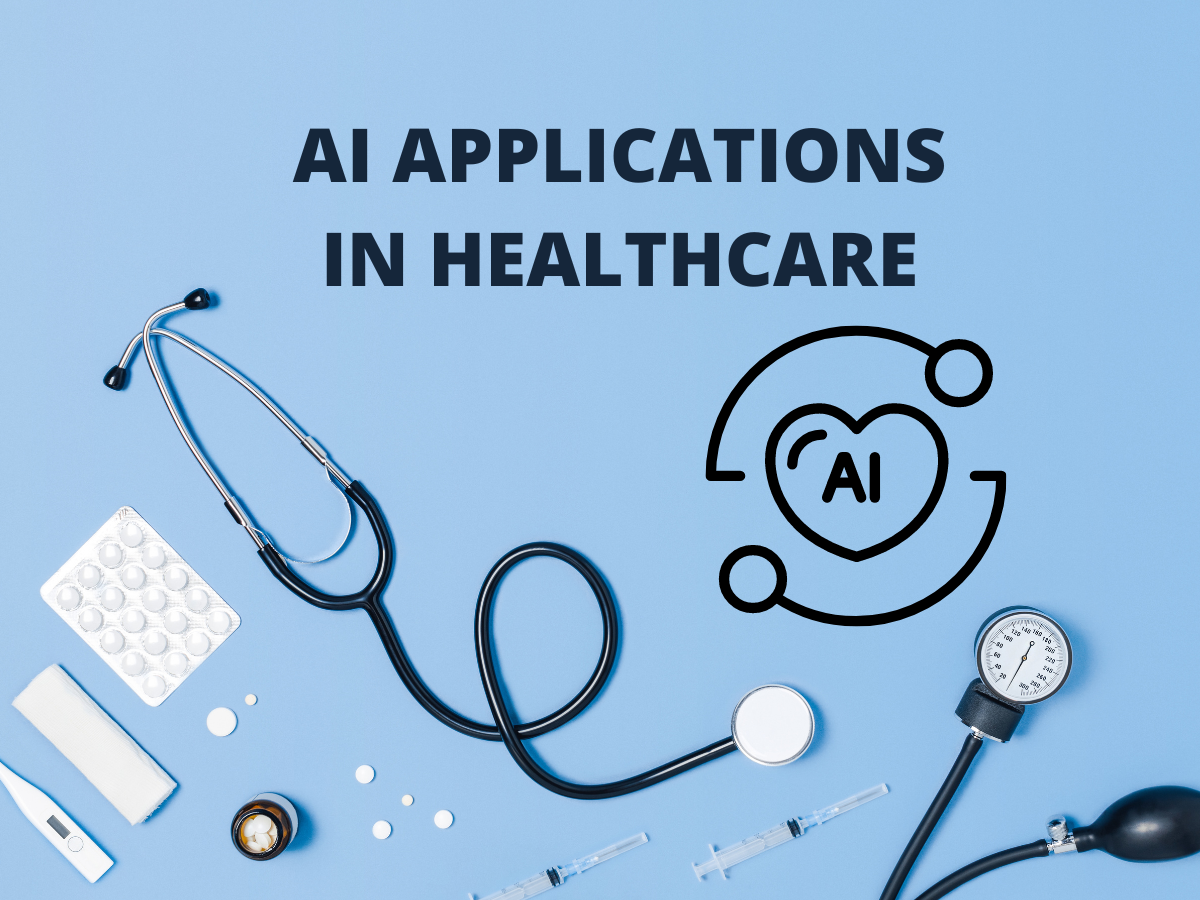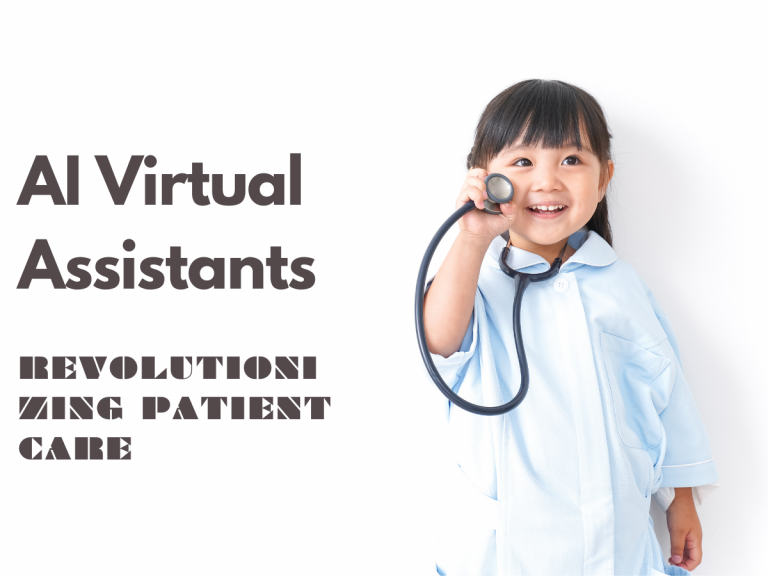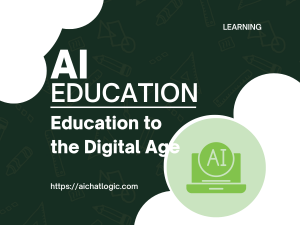1. Introduction
The field of healthcare is constantly evolving, and AI applications are playing a pivotal role in driving this transformation. AI technologies, such as machine learning and natural language processing, enable computers to analyze vast amounts of data and extract meaningful insights. These insights can be applied in various areas of healthcare, including medical imaging, diagnostics, personalized medicine, drug discovery, patient monitoring, robotics, and healthcare administration. By harnessing the power of AI applications, healthcare professionals can improve patient care, enhance diagnostics, optimize treatment outcomes, and streamline administrative processes. With advancements in AI technology, the possibilities for transforming healthcare are boundless.
2. AI Applications in Medical Imaging
AI has shown tremendous potential in the field of medical imaging. By leveraging machine learning algorithms, AI can analyze medical images, such as X-rays, CT scans, and MRIs, to detect abnormalities and assist radiologists in making more accurate interpretations. AI-powered image analysis systems can help in the early detection of diseases, such as cancer, enabling timely interventions and improved patient outcomes.
3. AI in Diagnostics and Decision Support
AI algorithms can be trained to recognize patterns in patient data and assist in diagnosing various diseases. These algorithms can analyze symptoms, medical histories, and test results to provide healthcare professionals with valuable insights and decision support. By incorporating AI into diagnostic processes, medical errors can be reduced, and patients can receive prompt and accurate diagnoses.
4. AI in Drug Discovery and Development
The process of discovering and developing new drugs is often time-consuming and expensive. However, AI applications have the potential to accelerate this process by analyzing large datasets and predicting the efficacy and safety of potential drug candidates. AI algorithms can identify patterns in genetic, proteomic, and clinical data to facilitate the discovery of new therapeutic targets, streamline the drug development pipeline, and optimize the overall process. By leveraging AI applications in drug discovery, researchers can save valuable time and resources, ultimately leading to the development of safer and more effective medications.
5. AI in Personalized Medicine
Personalized medicine aims to tailor healthcare interventions to individual patients based on their unique characteristics. AI technologies can play a crucial role in achieving this goal. By analyzing genetic information, medical records, and lifestyle data, AI algorithms can help healthcare professionals develop personalized treatment plans and predict individual patient responses to specific therapies.
6. AI in Electronic Health Records
Electronic Health Records (EHRs) contain a wealth of patient information, but extracting relevant insights can be challenging. AI-powered systems can analyze EHRs to identify trends, predict disease outcomes, and support clinical decision-making. By leveraging AI in EHRs, healthcare providers can deliver more efficient and patient-centric care.
7. AI in Patient Monitoring
Continuous monitoring of patients can be resource-intensive for healthcare providers. AI-enabled monitoring systems can analyze patient data in real-time and detect abnormalities or changes in vital signs. This early detection can help prevent adverse events and allow for timely interventions, ultimately improving patient outcomes.
8. AI in Robotics and Surgery
AI has made significant advancements in robotic-assisted surgery, enabling precise and minimally invasive procedures. Surgeons can use AI-powered robotic systems to enhance their capabilities, such as performing complex surgeries with improved accuracy and control. Additionally, AI can assist in preoperative planning and postoperative monitoring, optimizing surgical outcomes.
9. AI in Healthcare Administration
AI technologies have the potential to streamline administrative processes in healthcare institutions. Automated systems can handle tasks such as appointment scheduling, billing, and resource allocation, freeing up administrative staff to focus on more complex and value-added activities. AI-driven administrative solutions can improve operational efficiency and enhance the overall patient experience.
10. Ethical and Legal Considerations
As AI becomes more prevalent in healthcare, it raises important ethical and legal considerations. The responsible and ethical use of AI technologies is essential to ensure patient privacy, data security, and equitable access to healthcare services. Regulations and guidelines must be established to govern the development, deployment, and oversight of AI applications in healthcare.
11. Privacy and Security Concerns
The widespread adoption of AI in healthcare generates vast amounts of sensitive patient data. Protecting this data from unauthorized access, breaches, and misuse is crucial. Healthcare organizations must implement robust privacy and security measures, including encryption, access controls, and regular audits, to safeguard patient information and maintain trust in AI-driven healthcare systems.
12. Challenges in Implementing AI in Healthcare
While the potential benefits of AI in healthcare are significant, there are several challenges to overcome. These include data quality and interoperability issues, limited access to high-quality datasets, resistance to change among healthcare professionals, and the need for regulatory frameworks that keep pace with technological advancements. Addressing these challenges is crucial to the successful implementation of AI in healthcare.
13. Future of AI in Healthcare
The future of AI in healthcare is promising. Continued advancements in AI technologies, coupled with increasing access to comprehensive and interoperable health data, will fuel innovation in diagnostics, treatment, and patient care. However, it is essential to strike a balance between technological progress and human involvement to ensure that AI complements and enhances the skills and expertise of healthcare professionals.
14. Conclusion
AI applications in healthcare have the potential to revolutionize the way healthcare is delivered. From medical imaging and diagnostics to personalized medicine and robotic surgery, AI is driving advancements that can improve patient outcomes and enhance operational efficiency. However, addressing ethical, legal, and implementation challenges is crucial to realize the full potential of AI in healthcare.
15. FAQs
Q1: How is AI used in medical imaging?
AI is used in medical imaging to analyze images such as X-rays, CT scans, and MRIs, helping to detect abnormalities and support radiologists in their interpretations.
Q2: Can AI assist in drug discovery?
Yes, AI can accelerate the drug discovery process by analyzing large datasets and predicting the efficacy and safety of potential drug candidates.
Q3: What is personalized medicine?
Personalized medicine involves tailoring healthcare interventions to individual patients based on their unique characteristics, and AI can assist in developing personalized treatment plans.
Q4: How can AI improve healthcare administration?
AI can streamline administrative processes in healthcare institutions by automating tasks such as appointment scheduling, billing, and resource allocation.
Q5: What are the challenges in implementing AI in healthcare?
Challenges in implementing AI in healthcare include data quality and interoperability issues, limited access to high-quality datasets, resistance to change, and the need for regulatory frameworks to keep pace with technological advancements.













+ There are no comments
Add yours